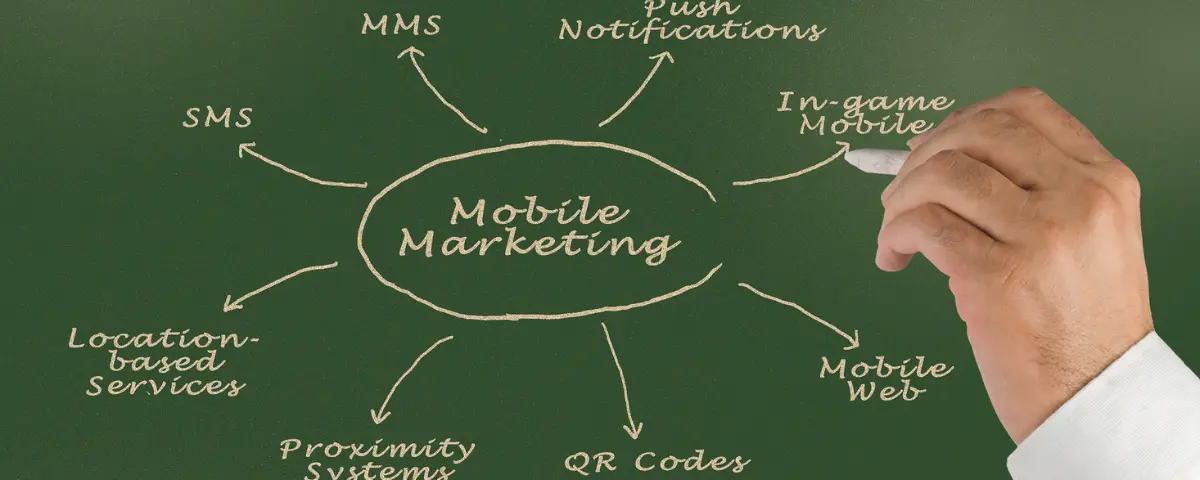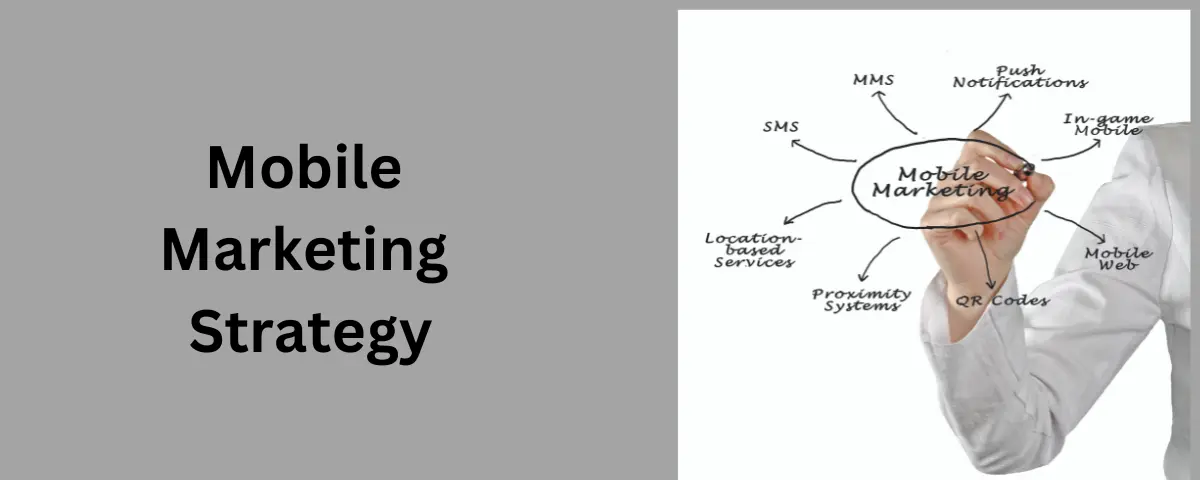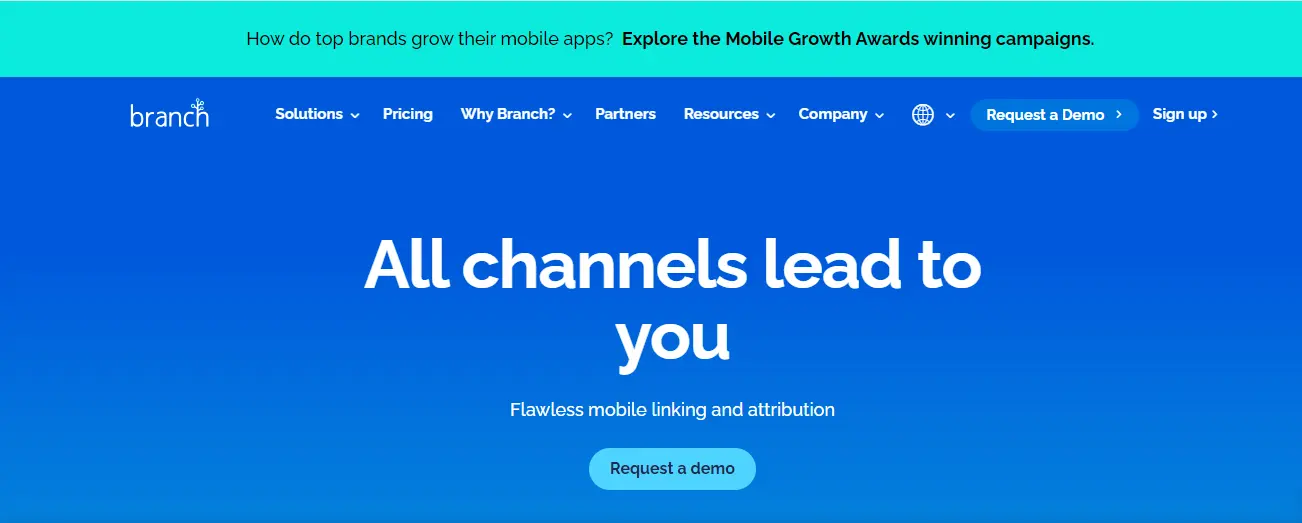In today’s world, where smartphones and tablets have become an integral part of our daily lives, businesses have a unique opportunity to reach and engage with their target audience through mobile marketing.
This dynamic approach to marketing leverages the power of mobile devices and their capabilities to deliver personalized, location-aware, and highly relevant experiences to consumers.
Whether it’s a well-crafted mobile app, a location-based offer, or a targeted social media ad, mobile marketing allows businesses to connect with their customers at the right time and place, offering convenience, value, and a seamless user experience.
As mobile usage continues to skyrocket, understanding and embracing mobile marketing has become crucial for businesses seeking to stay competitive, build brand loyalty, and drive conversions in the digital age.
Let’s learn more about mobile marketing, its impact and best practices for successful implementation.
What is Mobile Marketing?

Mobile marketing is using different channels to connect with consumers on their smartphones, tablets, and other mobile devices. It seamlessly blends into our daily lives, making it a valuable tool for business of any scale.
Get 50% Discount to Master ALL Aspects of Digital Marketing That Can Earn You $2,500 - $5,000 a month (Even if you are a complete beginner!)
Our students that intentionally implement what they learn from our digital marketing course make back the entire course fee within a single month or more after completing our course because our course gives them many income generating options with unlimited earning potential with no age or location barrier. The best part is no technical skills are required.
An opportunity to change your lifestyle and make money working from anywhere in the world. The results our students get from our digital marketing course prove this could be applied to any market or country and that it is designed for any skill level and work background.
*By signing up, you agree to our privacy policy and terms of service.
Whether you’re a large multinational company or a Digital marketing institute, mastering this marketing approach can help you expand your customer base and build stronger relationships.
It is an exciting and diverse aspect of marketing that focuses on the interactive relationship between businesses and customers through mobile devices. The goal is to connect with audiences in a way that fits their everyday use of smartphones and other mobile devices.
How Does Mobile Marketing Work?
Marketing through mobile devices is a versatile and engaging digital strategy that focuses on reaching audiences through smartphones, tablets, and other mobile devices.
This approach includes different methods like mobile search ads, social media campaigns, in-app advertisements, and SMS promotions to connect with users in ways that mirror their everyday use of mobile technology.
Effective mobile marketing strategies often involve a combination of these tactics, leveraging the unique capabilities of mobile devices to deliver personalized, location-aware, and contextually relevant experiences to consumers.
As mobile usage continues to grow, mobile marketing has become an essential component of modern digital strategies for businesses across various industries.
The Importance of Mobile Marketing
It is no longer news that consumers rely on their smartphones for a wide range of daily activities, from staying updated to buying groceries. This widespread use of mobile technology provides businesses with a great opportunity – the potential of mobile marketing.
Mobile marketing is a cost-effective way for businesses to connect with a large audience. When you compare it to traditional marketing methods, mobile campaigns are more affordable, allowing businesses to maximize their marketing budgets.
This accessibility enables businesses of all sizes to compete in the digital marketplace and build a strong brand presence. In addition to mobile marketing, there are other marketing practices and strategies within the digital marketing niche that can help your business succeed, check out our Digital Marketing course if you want to learn more about them and get started today.
Types of Mobile Marketing

SMS Marketing
SMS marketing is still a popular and successful strategy that sends messages straight to customers’ mobile devices. When paired with time-sensitive offers or information about favorite items, SMS promotions are very effective in capturing audiences and increasing sales.
Imagine receiving a text notification from your bank offering a discount on money transfers or a clothing store reminding you about an upcoming sale. SMS marketing boasts high open rates, making it a potent tool for driving immediate action.
App-based marketing
App-based marketing involves promoting products or services through mobile applications. This approach leverages the popularity of mobile apps to reach and engage users directly on their devices. Services like Google AdMob help advertisers create mobile ads that appear within third-party mobile apps.
If properly done, businesses can effectively target their audience and drive conversions through app-based marketing strategies.
Push Notifications
These brief, permission-based messages appear directly on a user’s mobile device screen. For instance, a ride-sharing app might send a notification informing you of a nearby driver and estimated pick-up time. Push notifications provide a timely and convenient way to engage users and keep them informed.
In-game Mobile Marketing
Mobile game advertising, often referred to as in-game mobile marketing, involves the display of ads within phone games. These ads can take the form of banner pop-ups, full-page image ads, or video ads that show up during loading screens.
Mobile Search Ads
Mobile search ads are simple ads on Google designed for mobile devices. They frequently include additional features such as click-to-call or maps.
QR Codes
QR codes are like digital treasure maps for users. When someone scans a QR code, they are transported to a special webpage that is linked to the code. QR codes are commonly used in mobile games, adding a sense of excitement and exploration. Users may not always know what surprises await them when they scan a QR code, adding an element of intrigue to the experience.
How to Create a Mobile Marketing Strategy

You must know that the development of a clear mobile marketing strategy plays a key role in ensuring that the desired results are achieved from the campaigns. This roadmap should include several factors.
Define your Target Audience
Analyze your audience’s mobile behavior, preferences, and pain points to ensure your mobile campaigns resonate with the right people. Identify which mobile devices and platforms they use, what types of content they consume, and when they are most likely to engage with mobile marketing efforts.
Optimize for Mobile
Ensure that your website, landing pages, and any digital assets are optimized for mobile devices. This includes responsive design, fast loading times, and a seamless user experience across different screen sizes and operating systems.
Develop a Mobile App Strategy
Developing a mobile app strategy is essential for business that want to reach users through mobile. Determine the purpose of your app, its features, user experience, and how it aligns with your overall marketing goals. Consider app promotion, user engagement tactics, and ways to measure success to ensure your mobile app effectively supports your marketing efforts and enhances customer interactions.
Leverage Location-Based Marketing
This involves using geo-targeting and location-based technologies to deliver personalized and context-aware marketing messages to users. This could include proximity-based offers, location-specific content, or location-based advertising. When you target users based on their physical location, you can increase the relevance and effectiveness of your mobile marketing efforts, driving more conversions and enhancing the overall customer experience.
Integrate Mobile Messaging
For effective mobile engagement, utilize channels like SMS, push notifications, and in-app messaging to deliver timely, personalized updates and offers to your target audience. This will help you to effectively reach and communicate with customers on their preferred devices, fostering stronger relationships and driving desired actions.
Mobile Advertising Opportunities
Mobile advertising involves utilizing various platforms and strategies to reach and engage with target audiences effectively. This includes leveraging tools like display network campaigns, product listing ads, Gmail ads, advertising on platforms like YouTube, Snapchat, and Instagram, as well as utilizing QR codes and creating mobile ad campaigns tailored to specific business goals and target audiences.
Analyze your Campaign
Regularly monitor and measure how well your mobile marketing campaigns are performing. Businesses can get very useful data about user behavior and campaign effectiveness from app analytics platforms and marketing automation tools. Use these findings to adjust your strategy, improve the content, and get the best return on investment (ROI).
If you still want to learn about how to create a mobile marketing strategy, why not attend our next digital marketing training to start to understand the fundamentals of online marketing.
Mobile Marketing vs Digital Marketing
Understanding the difference between mobile marketing and traditional digital strategies is essential for businesses looking to enhance their outreach efforts. Digital marketing covers various online tactics, such as social media, search engine advertising, and email marketing. On the other hand, mobile marketing focuses specifically on reaching users who access information through mobile devices.
Digital marketing is the process of sending marketing messages through digital platforms such as websites, social media, email, and search engine advertising. Pay-per-click advertising, search engine optimization, content marketing, and social media engagement are key elements of digital marketing strategies. It is important to note that digital marketing targets a wide range of devices, from laptops to tablets to smartphones, providing a holistic approach to reaching online audiences.
In contrast, mobile marketing is different. It is about customizing marketing strategies for individuals who are interacting with content on their mobile gadgets. This can involve tactics such as SMS marketing, mobile apps, in-game advertisements, and location-based marketing, all aimed at enhancing user experiences on smartphones and tablets.
Mobile Marketing Tools
There are various marketing tools specifically designed for mobile marketing to make your digital marketing efforts easier. It’s essential not to overlook its power. This is necessary if you want to keep up with the rising demand for mobile-friendly experiences among your customers.
Let’s explore some tools you can use for your mobile marketing strategy
Google AdMob
Google AdMob is a mobile advertising platform created by Google, enabling app developers to earn money from their mobile apps by showing ads from different advertisers.
AdMob offers developers a range of tools to effortlessly incorporate ads into their apps. These tools include banner ads, interstitial ads, rewarded ads, and native ads. AdMob also provides targeting options and analytics tools to assist developers in maximizing their ad revenue. It is compatible with both iOS and Android platforms, supporting a variety of ad formats such as text, image, video, and HTML5 ads.
Branch
Branch is a versatile tool used by businesses to track the effectiveness of their mobile marketing efforts and enhance user experience. It provides insights into the impact of marketing campaigns on mobile platforms, helping drive engagement, growth, and revenue.
It’s key features include track marketing efforts across different platforms, create custom links for QR codes, email, social media, and SMS. It also protect against fraud.
AppsFlyer
AppsFlyer is a company that specializes in mobile marketing analytics, providing businesses with insights into how users discover and engage with their mobile applications. It tracks installs, analyzes user behavior, and measures marketing campaign effectiveness.
Mobile Marketing Examples
We all spend a lot of time on our phones, browsing through social media, staying updated on the latest news, and maybe even shopping online. Therefore, it is only logical for businesses to have a presence on mobile platforms as well.
GTBank
GTBank, a leading Nigerian bank, utilizes mobile marketing through its easy-to-use app. The bank sends push notifications for transaction confirmations and account updates, ensuring customers stay informed about their finances on the move. Additionally, they offer in-app promotions for exclusive deals and discounts with partner businesses, benefiting both the bank and its customers.
Jumia
Jumia, the top e-commerce platform in Nigeria, excels in mobile marketing. Utilizing push notifications, they provide updates on flash sales, new product arrivals, and even send reminders for abandoned carts. Jumia enhances user experience by personalizing product recommendations based on browsing history.
Mobile Marketing Best Practices
Prioritize User Experience
Ensure your mobile campaigns provide a seamless and user-friendly experience. Optimize your website, landing pages, and any digital assets for mobile devices, with fast loading times, responsive design, and easy navigation.
Personalize and Localize
Leverage user data, location information, and preferences to deliver personalized and location-aware mobile experiences. Tailor your messaging, offers, and content to individual users for maximum relevance and impact.
Respect User Privacy
Be transparent about how you collect and use user data, and always obtain proper consent before sending promotional messages or push notifications. Respect user preferences and provide options to opt-out or manage communication preferences.
Focus on Value
Mobile users expect immediate value and utility from their interactions. Offer valuable content, exclusive deals, or convenient features that enhance the user experience and provide tangible benefits.
Optimize for Small Screens
Design mobile-friendly content and creative assets that are easy to consume on small screens. Use concise messaging, clear visuals, and intuitive navigation to ensure a seamless mobile experience.
Conclusion
Mobile marketing is now a crucial part of digital marketing strategies. This is because it allows businesses to connect with consumers through their mobile devices, fostering stronger relationships and driving engagement to meet set objectives.
To get practical knowledge about how to successfully use mobile marketing to grow a business either as a business owner or as an individual, register for our practical digital marketing course.
FAQs
What are the top mobile marketing apps?
Mobile marketing isn’t one app, it’s a strategy! Think of it as a toolbox, with each app a different tool. The best app depends on your goals, from social media scheduling to email marketing. Signals, TXT180 and SlickText appear to be the top ones.
What is another name for mobile marketing?
Another name for mobile marketing is “mobile advertising.” It is a multichannel, digital advertising strategy focused on reaching customers on their mobile devices through various channels like websites, email, SMS, social media, and mobile applications.
What is mobile advertising?
Mobile advertising refers to a multichannel, digital advertising strategy targeting mobile device customers. It involves delivering real-time messaging through mobile ads to help customers discover new products, promotions, and deals. Mobile advertising allows brands to connect with audiences where they are, using devices they already use, such as smartphones and tablets.
What is Mobile Commerce?
Mobile commerce (m-commerce) is basically shopping in your pocket. It’s buying and selling things using your phone or tablet. It is a subset of e-commerce and involves buying products and services, paying bills, and banking online.
More Posts
Is Your Site ‘Mobile- Responsive and Friendly’? Google’s About to Decide for You
3 Reasons Why Responsive Web Design is the Best Option For Mobile SEO
User-Generated Content (UGC): How to Use It in Your Marketing Strategy





